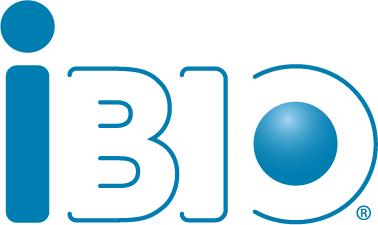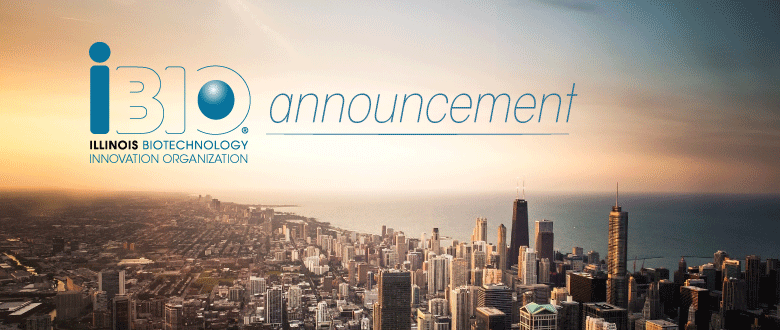New Initiative to Expand Access to Wet Lab and Research Space and Bolster Illinois’ Status as a Leader in Research and Life Science
Governor JB Pritzker and the Illinois Department of Commerce and Economic Opportunity (DCEO) announced the Rebuild Illinois Wet Lab Capital Program, a new initiative designed to address critical lab space required for startup and growth-stage life sciences companies. The State is making an initial $9 million Notice of Funding Opportunity (NOFO) available to expand access to 21st century lab space to incubators, corporations, university researchers, and start-ups, with a matching requirement bringing the total impact of this program to at least $18 million.
This new initiative by the Pritzker administration will promote Illinois’ ability to retain and attract companies in the critically important life sciences industry. The NOFO can be found on DCEO’s website.
“Illinois has been a world leader in life sciences for nearly a century and features some of the top hospitals and research institutions in the country,” said Governor JB Pritzker. “The Illinois life science industry is already a powerful economic driver for the state’s economy, but these investments allow Illinois to leap ahead as science and technology are evolving at warp speed. This opportunity is even more critical as Illinois continues to feel the impact of the ongoing COVID-19 pandemic and at a time where science, research and innovation are key for the health and prosperity of our communities.”
Wet labs, or laboratories with specialized ventilation and utility connections to allow for research of chemicals and materials, are where cutting-edge research in life sciences occurs. Life sciences is an increasingly important sector for keeping communities safe, and its industry cluster includes biotechnology, pharmaceuticals and medicines, medical devices and diagnostics, research and manufacturing organizations and life science consulting. Together these industries encompass 58,000 life sciences companies located in Illinois.
“As a leader in research and development, and with access to the most diverse and talented workforce in the nation – Illinois is poised to support the continued growth and innovation of our life sciences industry,” said Erin Guthrie, Director of the Department of Commerce and Economic Opportunity. “These investments by Governor Pritzker to stimulate additional industry growth will lead to more well-paying jobs and contributions to the health of our local economies and will ultimately put Illinois at the forefront of making life-changing scientific breakthroughs.”
Illinois is home to the nation’s second-largest biopharma concentration, and a portfolio of universities putting Illinois at top five in the nation for chemistry R&D, making the state a natural fit for attracting new life science companies to grow and expand. Laboratory space is one of the most important components for an early stage company’s growth, and the addition of wet lab space will allow for companies to thrive in this industry throughout Illinois.
“Illinois has always been home to world class academic researchers and global corporate leadership in the life sciences industry, but the historic lack of physical infrastructure has stunted the growth of our ecosystem,” said John Conrad, President and CEO of iBIO. “Governor Pritzker’s support for a pro-innovation economy will lead to unprecedented growth in our community fueled by investment into lab infrastructure projects supporting job growth and groundbreaking research to transform patients’ lives.”
More than 1,200 life sciences jobs have been added since Governor Pritzker took office and based on current growth rates the industry is poised to add another 80,000 jobs in Illinois alone in the years ahead. To spur more growth, Illinois is putting forward funding dedicated as part of Rebuild Illinois – the state’s historic capital program. Funds may be used to upgrade or develop new wet lab space in Illinois.
“Life sciences companies are drawn to Illinois’ world class research universities, talent pipeline, robust network of existing companies such as Abbott, AbbVie, Baxter and Horizon, and its competitive cost of doing business,” said Intersect Illinois Acting CEO and COO Alya Woods. “This new investment to encourage the development of wet lab space throughout the state will propel our life sciences industry to the next level by providing resources for new companies to grow and thrive.”
Wet Lab Capital projects must demonstrate that the facility will fill a gap needed in the region, and priority will be given to those projects demonstrating partnership with incubators, universities and colleges, medical facilities, and/or businesses requiring wet lab space. Applicants must also present a plan for recruiting from underserved areas, as well as to achieve minority business participation requirements of the State of Illinois’ Business Enterprise Program.
“Through this critical program, Governor Pritzker is focusing upstream where the sparks of discovery first break – this is exactly where Illinois needs it the most,” said Dan Lyne, CBRE. “Our life sciences community has really been catching its stride in recent years, with the lack of supporting lab infrastructure remaining as one of the only barriers holding the region back from the pole position. This program will no doubt help move that needle.”
To qualify for the NOFO, the space must be a multi-tenant space available to incubators, corporations, university researchers, and/or start-ups. On-site, owner-occupied space for individual corporations is not eligible. More information on eligibility and the application can be found on DCEO’s website.
Expanding capacity for the life sciences industry to grow is aligned with the Governor’s 5-year economic growth plan for Illinois – which prioritizes investments in industries with high growth and jobs potential. Since 2019, more than 25 new life sciences companies have announced plans to develop lab space in Illinois. Today, the life sciences industry powers an estimated 717,000 jobs in the state, with jobs in this sector estimated to provide wages 120 percent higher than that of the average Illinois wage. The Wet Lab Capital Program also builds on ongoing work by the administration to support the growth biotech startups – including expansion of the research and development tax credit for innovators and other tools to attract investment by early stage companies.
Applications for Rebuild Illinois Wet Lab Capital Program NOFO are due on January 27. DCEO has posted a technical assistance webinar which can be viewed at any time. For the webinar, more information on eligibility, and how to apply, visit DCEO’s website.

